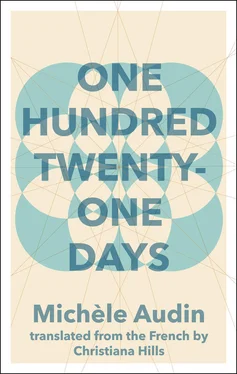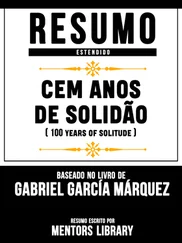CHAPTER VIII. One Hundred Twenty-One Days
On the 24th of August, 1944 at 8:45 p.m., the first tanks of General Leclerc’s 2nd Armored Division made their entry into Paris via the Porte d’Orléans. The uprising had started on the 13th, the French flag was fluttering over the Sorbonne on the 19th, the Hôtel de Ville and the ministers were free on the 20th, but the fighting wasn’t over and Paris was covered in six hundred barricades. On August 25th, at the Montparnasse train station, Colonel Rol-Tanguy and General Leclerc accepted the surrender of the German troops. The most beautiful day of our lives, some said. That’s it, it’s over! We’re going to live again! everyone thought. The black vehicles were covered in a rainbow of summer dresses and flags. People were singing “La Marseillaise,” girls were dancing in the streets and boys were kissing them.
This glorious and symbolic liberation was soon joined by the liberation of Troyes, in the east, and those of several cities in the Paris Basin and the middle of France.
On August 27th, Clermont-Ferrand was liberated as well. This, too, was a collective outpouring of jubilation. The female Alsatian students who had been taking refuge in the town along with the University of Strasbourg for almost five years made traditional costumes with big black headdresses and danced in the Place de Jaude. It’s over, thought Mireille and her mother, we can go back home.
Since the end of June 1942, the two women, both Parisians, had been living (or, in any case, surviving) in a hamlet near the town, more or less hidden away with the villagers’ discreet complicity. The two of them had left Paris and crossed the Demarcation Line a few days after it had become mandatory to wear the star, just before the big roundups in July. Only Mireille and her mother were mentioned in the previous sentences because Mireille’s father died “ pour la France ” during the fighting that took place in May 1940. As for the star, it came up because French law had decided that Mireille’s mother Nicole, with a maiden name of Gorenstein, was Jewish, and therefore so was Mireille. This imposed Jewishness was a novelty for the two women. It did not accompany any religious beliefs, any rituals, any family traditions — in fact, not one specific thing Nicole and Mireille could have possibly shared with other “Jews” or “half-Jews.” What’s more, the women had thought for a few weeks afterwards that because Mireille’s father, a Parisian lawyer from a family of practicing Catholics (though he himself was an atheist and a free thinker), had been killed in action, they would be protected from the anti-Semitic decrees of October 1940. They had quickly understood that that wouldn’t be the case. But now it was over, France was going to be free, they were going to live again.
In September, when there was fighting around Metz (because the war wasn’t actually over), Mireille and her mother arrived in Paris, the same day the leaders of what had been previously known as the French State were taking refuge in Sigmaringen, Germany. On Rue de Médicis, the women’s apartment had been emptied of all its furniture. They found the dining room table and chairs with a neighbor, who had kept them in expectation of the women’s return (so she said). But they would never know what became of the rosewood desk and bookcase from the law office, or the bathtub. The fact that all the books had disappeared upset them more than the loss of their armchairs, beds, linens, or dishes. Living again… Yes. To start, one had to find mattresses to sleep on. Eating again… not quite yet. So much energy was needed to procure something to eat. Something to cover up with, as well, because autumn, cool and wet, had arrived. So much time was lost in the displacements. The price of a bicycle was unimaginable. Fortunately, certain sections of the metro were starting to work again, when there was electricity.
It was over. People were reconnecting, writing to friends with whom they’d been out of touch, for years in most cases. Some wrote back, others didn’t. People were visiting each other. Information was spreading. Letters arrived from a cousin who was being detained as a prisoner of war. One of Mireille’s neighbors and classmates was beaten and her head was shaved in public, all because someone claimed to have seen her walking with a German soldier in the Jardin du Luxembourg. One of Nicole’s cousins, a brilliant young professor and the head of a Resistance network, had been denounced as a Jew by a fellow Frenchman and hanged. Another was said to have been killed along with his wife by the French Militia; both were supposedly found later with insulting words written on their bodies. Yet another had been shot for acts of resistance. Or deported to Germany.
But of the ones sent there, there was almost no information.
Since the women’s return, Mireille’s mother had received news of her brother Robert, who was confined to the Saint-Maurice psychiatric hospital, and with whom she had not been able to communicate for several years. Like the other patients, he had mainly suffered from the lack of food during the occupation, but he had really made the best of the situation, having even managed to publish mathematics articles under a pseudonym that he had abandoned as soon as the liberation of Paris was announced — proof that he had continued to be interested in current events. That’s what the psychiatrist, a Doctor Busoni, wrote to Nicole in his response to her letter. She went, a little on the metro and a lot on foot, to the hospital, which she hadn’t done since Mireille was born.
“The worst is behind us,” the doctor said to her.
“I’m fine,” Robert said to her.
And when she was concerned to find him thinner:
“Well, you’re thinner, too,” he observed.
She told him, in a few minutes, about her two years of life with Mireille in Clermont-Ferrand. He also had news for her.
“Doctor Meyerbeer was seized in a roundup of Jews, taken to Drancy, then deported to a camp in eastern Germany, or maybe Poland,” he explained to his sister. “But it’s over, the war’s going to end,” he, too, added. “And he’s going to come back,” he said. “Or maybe not.”
In October, it rained almost every day. Mireille’s mother went back to her job teaching high school at the Lycée Chaptal. On the first day, an actor read a Resistance poem called “The Night Watchman of Pont-au-Change” during the tribute to the former students who had been killed by the Germans. Its author, Robert Desnos, was still in captivity somewhere. The bugle calls, the minutes of silence, and the memorial wreaths marked the start to the new school year.
In the Jardin du Luxembourg, which Mireille could see through her bedroom window, the wet paths were covered in dead leaves. Torrents of water fell on the day the news came that Athens had been liberated. And then, a week later, the Allies entered Aix-la-Chapelle, finally, a German city, the first one. Like everyone else, Mireille and her mother were listening to the news on the radio and the remarks people made while waiting in line to buy food. And like everyone else, they were moving around little flags on maps of Europe. A mass of happiness and hope had irrupted in August, from which no one could completely escape.
On November 11th, Churchill and de Gaulle walked down the Champs-Élysées together, to the cheering of an innumerable crowd. Mireille and her mother were there, too, with some rediscovered friends. And it was the first day of classes at the universities. At Clermont-Ferrand, Mireille had started studying German literature. When she enrolled in classes at the Sorbonne, she added Dante and Petrarch to Goethe, Schiller, and Heine. The professors, at least all those who were in Paris, returned to teaching. Many among them had just been reinstated to their teaching positions after being previously dismissed by Vichy. Several had been detained in stalags or oflags, others had been arrested, some had even been shot while working for the Resistance. Two or three collaborators had been subjected to the purge, but in a quite merciful way — a few weeks of suspension that were already over. Some had been sentenced to prison, but they would be out soon. To have possibly loved a German was more objectionable than having definitely loved the Greater German Reich. And besides, for its reconstruction, France needed all the help it could get.
Читать дальше












